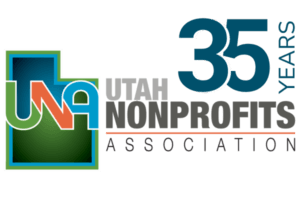About the Standards of Ethics for Utah’s Nonprofits
As nonprofits, we rely on the public trust to do our work. This is why it is essential to earn trust by committing to ethical principles, transparency, and accountability. We have good intentions of maintaining integrity and ethical practices; however, intentions don’t always meet reality. Without policies and procedures in place to uphold ethical behavior, decisions made for the organization may not always align with those good intentions. Together, policies and procedures can provide a roadmap for decisions made at all levels of the organization, promoting a fair, predictable, and consistent framework to guide the management of the nonprofit.
As a member of Utah Nonprofits Association, my organization commits to:
- Acting with integrity and upholding the values of transparency and accountability in all aspects of our work; avoiding conflicts of interest; ensuring compliance with all federal, state, and local laws as well as industry standards
- Treating colleagues and service beneficiaries with full respect; maintaining a physically and emotionally safe environment
- Demonstrating civility and creating environments that treat others with dignity
- Providing equal opportunity in employment
